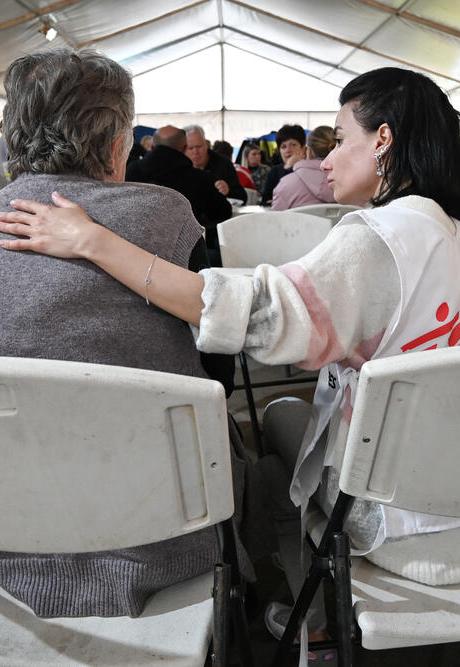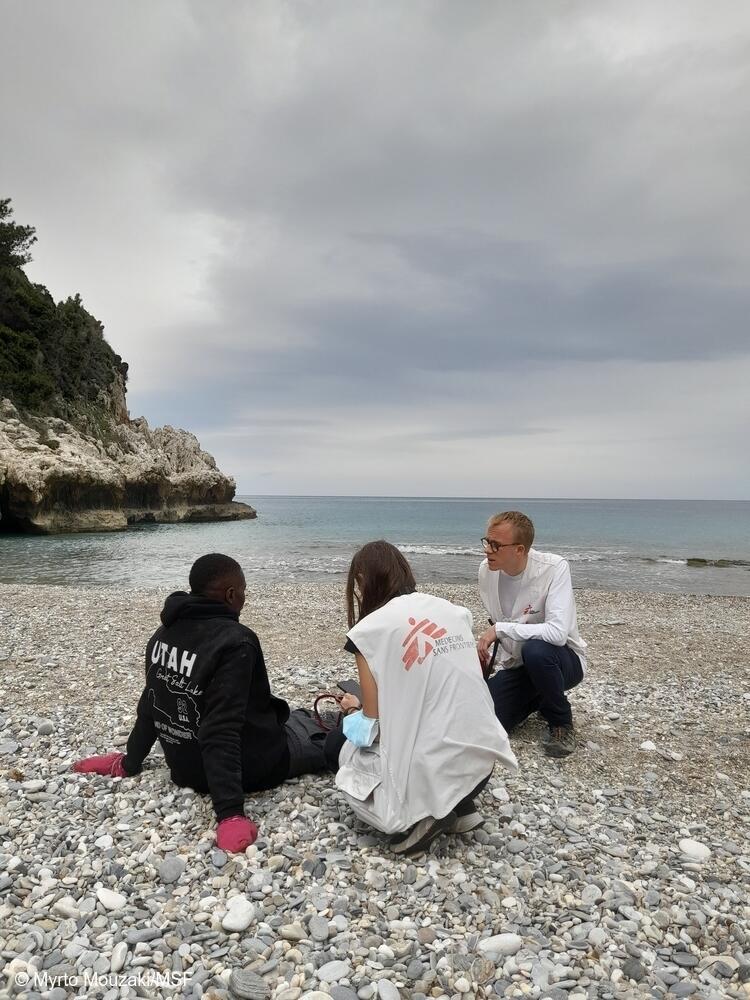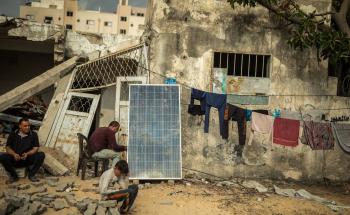From our long history of emergency response, Médecin Sans Frontières (MSF) knows that mental health is sometimes not prioritised in the critical moments after a traumatic event. Yet mental health support is essential to help people adapt, recover, and rebuild their lives in the wake of an emergency.
Psychological first aid is provided to people experiencing acute distress after a traumatic event, helping them cope with shock, panic attacks, confusion, and changes in appetite and sleep patterns, among other symptoms.
“It’s a simple training that anyone can do,” said Dr. Bashar Ghassan, an MSF psychiatrist based in Jordan. The aim is to stabilise the person; secure a safe space; ensure access to food, shelter, water, and medications if needed; and connect them to social support.
Who benefits from psychological first aid?
MSF teams provide psychological first aid in a range of contexts, including after the earthquakes in Türkiye and Syria in 2023, the Ukraine war, and incidents of mass displacement.
In Ukraine, MSF mobile clinic teams have provided psychological first aid to survivors of missile attacks. When people took refuge in Kharkiv’s metro stations in 2022—many coping with the loss of family members, friends, homes, and plans for the future—MSF teams set up mobile clinics to provide psychological first aid. Dr. Morten Rostrup described the scene: “A seven-year-old girl who had constant nightmares and was afraid of falling asleep. People experiencing physical pains they couldn’t explain. People who felt like they couldn’t breathe. A woman with sky-high blood pressure who was at risk of having a stroke ... An old man who had suffered a stroke and had high blood pressure. He couldn’t sleep.”
We also train people in the places we work on how to provide psychological first aid, since you don’t need to be a mental health professional to do so. Training includes self-care for the providers, which helps them identify when they themselves need help and how to get care.
How is psychological first aid provided?
The first step, upon arriving at the scene, is to identify people already experiencing the psychological impact.
“We always pay attention to those who sit in silence, because it’s clear that this is a state of unresponsiveness which a person needs to be brought out of,” explained Inna Potapenko, an MSF psychologist in Ukraine. “The most important [thing] is to establish contact with the person and make clear that they see you, hear you, and understand where they are.”
In some cases, psychological first aid is followed with cognitive behavioural therapy, a psychosocial intervention aimed at reducing distress by changing maladaptive thinking patterns. When people can link their physical symptoms (for example hyper vigilance) to the mental trauma, they start to recognise that if they can manage the thoughts then the physical symptoms will also start to be manageable. This form of intervention must be provided by a mental health professional, unlike psychological first aid, which anyone can be trained to provide.

Why is psychological first aid important in emergency response?
Almost anyone will experience psychological distress in the aftermath of an emergency or traumatic event. For most people, symptoms will eventually improve. Receiving timely and proper support can reduce a person’s recovery time from a traumatic event.
“In the beginning it is very painful; the wound is fresh,” says Dr Ghassan, who provided psychological first aid in the wake of the deadly 2023 earthquakes in Syria. “But by allowing people to talk about their experience, we try to turn it into a scar.”
One in five people who have experienced war or other conflict in the past 10 years will have depression, anxiety, PTSD, bipolar disorder, or schizophrenia, according to the World Health Organization (WHO). People who already have severe mental health disorders are particularly vulnerable during these crises and need support.
“As a medical professional who speaks Arabic and Berber, I was able to talk to people, listen to their stories, and help them express their emotions,” said Fouzia Bara, an MSF nurse who was part of the team that responded to the earthquake in Morocco in September 2023.
“Generally, holding psychological first aid sessions in Berber is a challenge because Morocco is short on psychologists who speak the language. Given my background, however, I was able to hold group sessions without a translator.”



